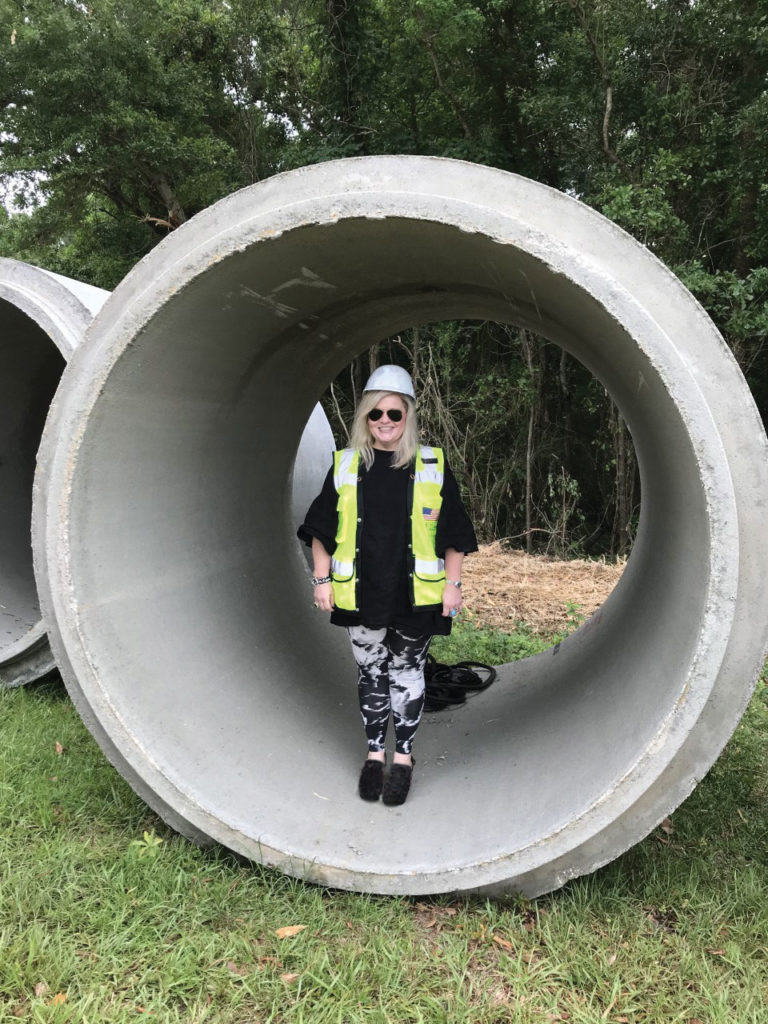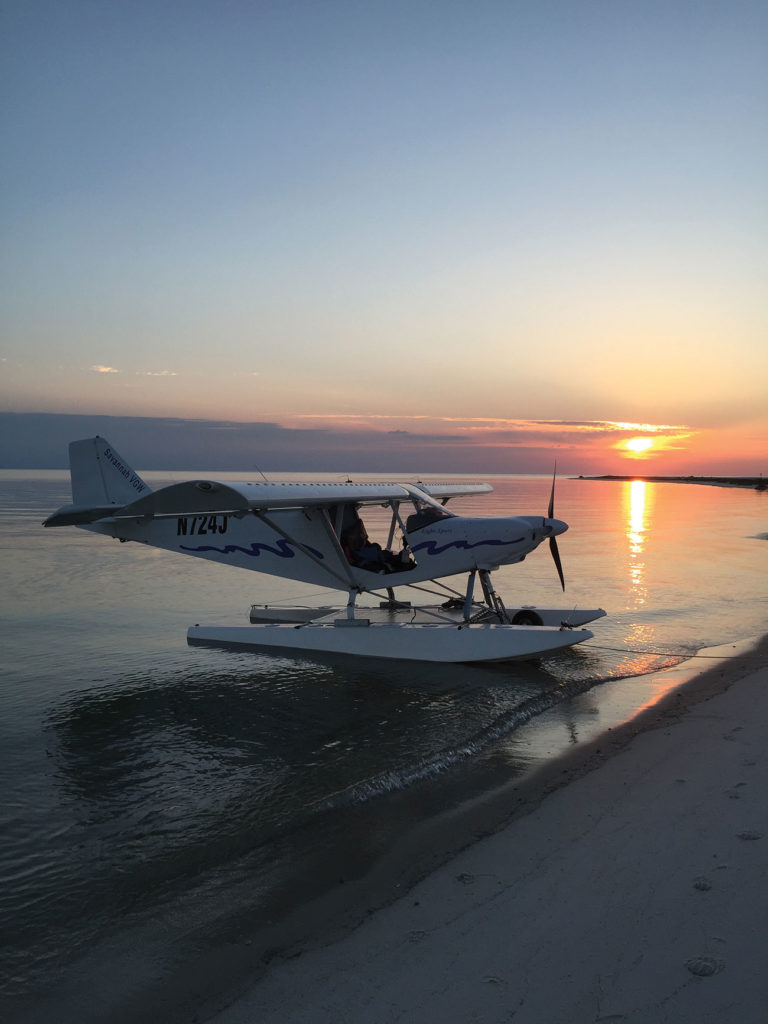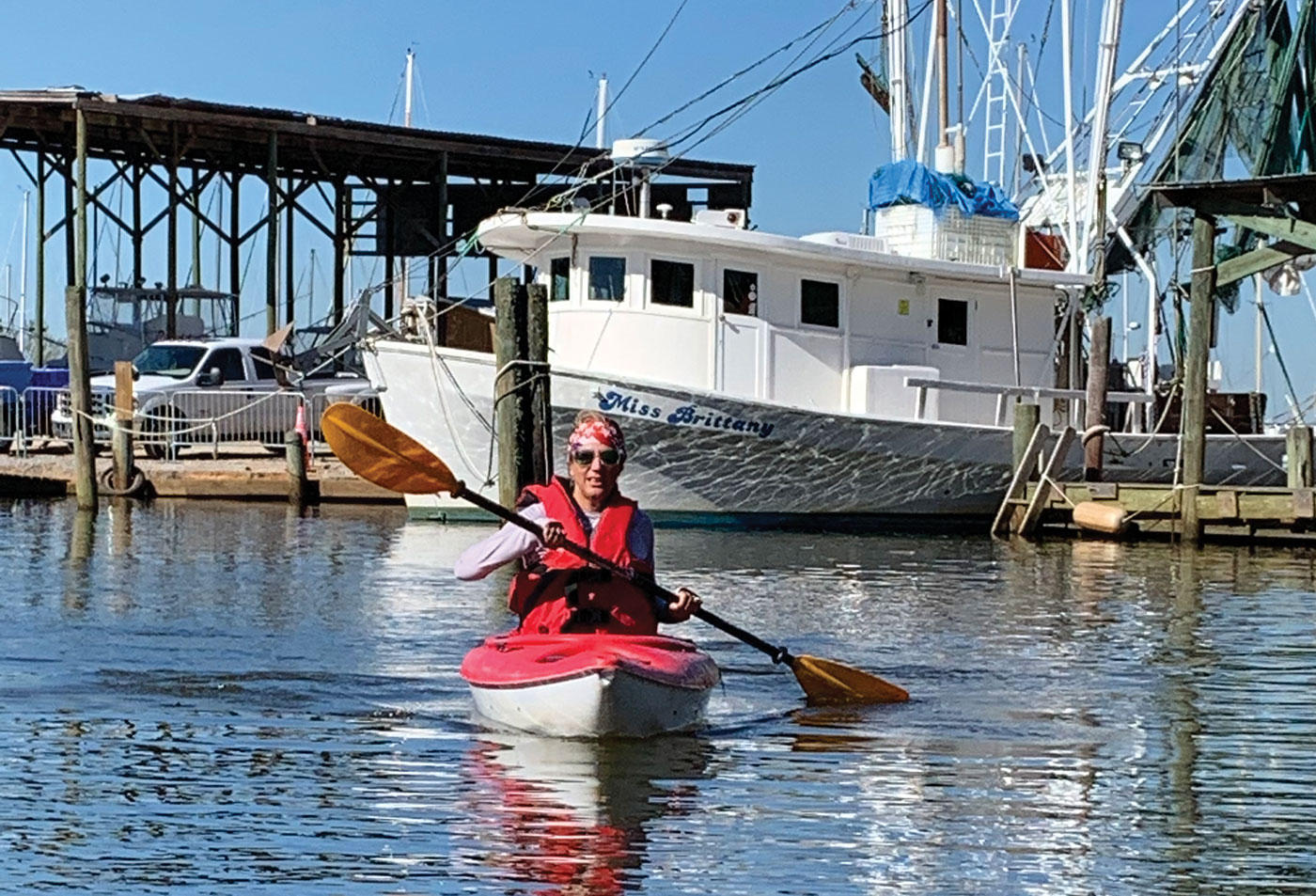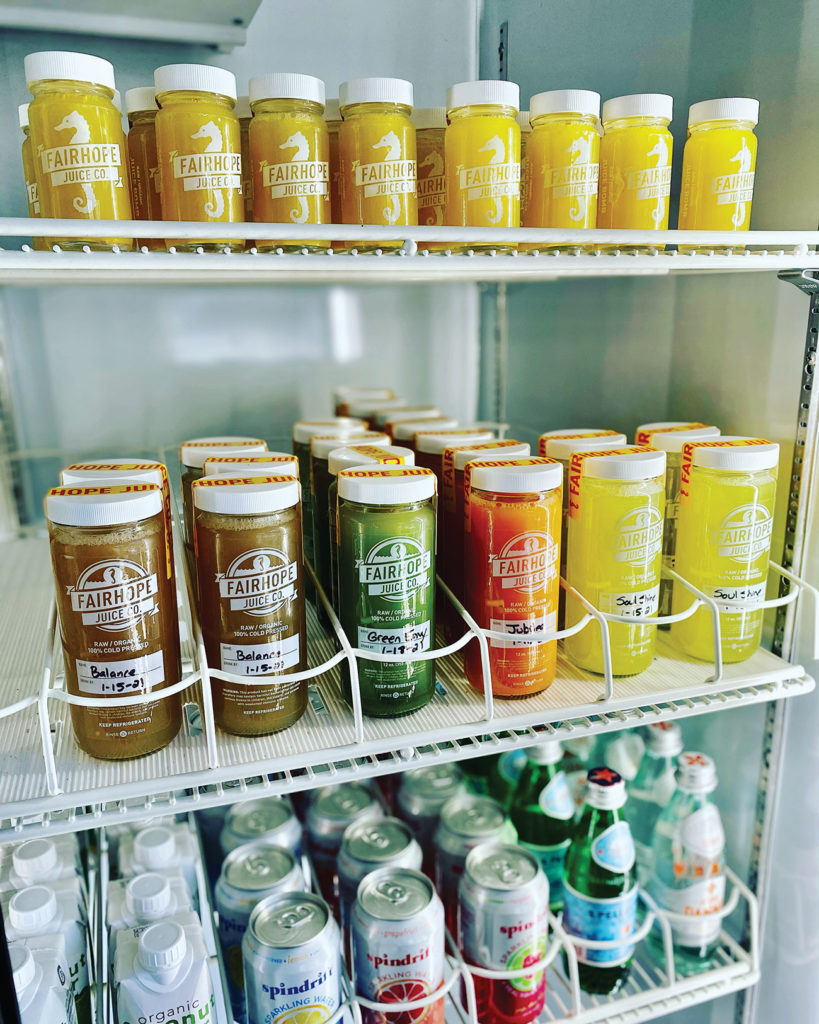
From sun-kissed shores to centuries-old oaks, the Bay area is graced with a remarkable ecosystem, and many Mobilians are taking action to preserve and revitalize the outdoors around us. From managing stormwater in our rainy towns to focusing on the climate crisis, these environmental activists are doing their part.
But the crusade to maintain our ever-changing habitat doesn’t stop with them. These leaders in conservation encourage each and every one of us to start small and go from there — even saving rainwater for everyday use goes a long way.
For the second year, MB salutes eight leaders who show us how to care for this beautiful place we call home. All it takes is a little commitment and a lot of love for our part of this world.
These are the recipients of Mobile Bay Magazine’s 2021 Watershed Awards.

Rosemary Ginn: Trash Talking
As an assistant city engineer for the City of Mobile for almost 8 years, Rosemary Ginn’s main concern is litter and how it affects stormwater systems in the rainiest city in America.
“When litter is thrown down on the side of a wet road, it flows right into an inlet or ditch, which makes its way into a waterway and then Mobile Bay,” Ginn says. “Now, who wants to swim or fish in that?”
Recently, Mobile was awarded the Trash Free Waters grant, enabling the city to place devices in our water inlets to decrease the debris that enters the stormwater system. Good news for us!
But not all litter can be stopped this way. When asked what we can do to help, Ginn urges everyone to join or support clean-up efforts, to pick up trash whenever it’s encountered and to view the entire Bay area as our collective front yard.
Sam St. John: The Viewer

Picture this — aerial photographs of some of the Bay’s most incredible and impactful sites, such as the uninhabited end of Dauphin Island or the aftermath of Hurricane Sally.
In addition to co-owning Logical Computer Solutions Inc., Sam St. John soars high above Mobile for the not-for-profit FlyTheCoast.com to highlight the beautiful sensitivity of our coastal environment.
St. John’s flight path is over coastal marshes, barrier islands, and shorelines, documenting hard-to-see areas and sea life that need attention. These photos are sent to organizations such as the Dauphin Island Sea Lab, Mobile Baykeeper, Alabama Coastal Foundation, Alabama Department of Conservation and Natural Resources, Port of Mobile and tourism and economic development groups. The visuals point out treasures, some of which may be in trouble.
Although it may seem like a dream to fly every day, St. John expresses how tangible his contribution is: “Not everyone is able to see what I see during a coastal flight; it’s my goal to provide awareness of our valuable coastal resources, all while ensuring our environment is protected in the process.”

Cade Kistler: Show and Tell
As program director for multifaceted Mobile Baykeeper, Cade Kistler never has a dull moment. Some days, he educates high school students through the Strategic Watershed Awareness and Monitoring Program (SWAMP), taking them to local streams to test water quality. On others, he stands waist-deep in the Bay taking samples for the Swim Where It’s Monitored (SWIM) program, ensuring that our waters are safe. But he’s not the only one who has all the fun! Another one of his responsibilities is helping to coordinate the many volunteers Mobile Baykeeper counts on, instructing them to become certified testers of water quality or arranging dates and supplies for litter pickups.
When he and other Baykeeper staff, like Executive Director Casi Callaway or Communications Director Caine O’Rear, talk to groups, they share that making changes at home can go a long way when working to protect the environment: “I know we all want that perfect green lawn, but think about all of the pesticides, herbicides and fertilizers that contaminate our water. If anything, start by picking up after your pets. Everything may seem small in isolated instances, but they add up in a big way. By being mindful of our own actions, we can have a massive positive impact on our waterways. It all starts with you!”
Visit mobilebaykeeper.org to learn more.
Gulf Coast Creation Care: New Faith

In the summer of 2019, All Saints Episcopal and Open Table United Church of Christ cracked open Jim Antal’s book “Climate Church, Climate World.” After extensive discussion and inner reflection, Gulf Coast Creation Care (GCCC) was born. The faith-based climate action alliance grew to include Jewish, Muslim and Christian congregations. Recently, in partnership with Interfaith Power and Light, a national organization of churches to raise awareness and mitigate the effects of climate change, GCCC created a 40-Day Creation Care Challenge. This challenge provides daily solutions to help conserve water, lessen pollution and reduce the carbon footprint.
The mission of the all-volunteer GCCC group is to provide a voice for those whom faith and the environment are entwined. It encourages all of us to reconnect to one another and the natural world through recognizing that everything we do affects the people and world around us.
“We have to find that balance between love of success and gratitude for what’s already here,” says team member Rhoda Vanderhart. “What we truly love, we will cherish forever.”
Daniel Galbraith: Developing Trust
For Daniel Galbraith at Tonsmeire Properties, the number one priority is to make positive environmental impacts while housing a growing population. As director of operations, Galbraith implements green spaces at rental communities (in the form of gardens and small fruit orchards), installs solar panels in each unit, replaces lightbulbs with LED lighting and places recycling bins on all properties, in hopes of making as little of an environmental impact as possible.
Galbraith’s environmental advocacy doesn’t stop there. He’s also on the board of directors for the South Alabama Land Trust (SALT), formerly known as the Weeks Bay Foundation. Over the past 14 months, SALT has protected over 1,650 acres of land bordering Oyster Bay, acquiring over two miles of shoreline on the Bon Secour River. After obtaining new land, SALT works to protect the habitats on every property while increasing public access to these beautiful areas.
SALT consults with Gulf Coast residents about tax incentives for donating property. They also, of course, accept monetary contributions. Galbraith says another way to contribute is to remember, “No matter where you go, you are within a watershed. Remember, small decisions upstream have big consequences downstream.”

Kim Burmeister: Standard Bearer
The delicate balance between helping property owners understand their rights while enforcing city codes is Kim Burmeister’s forte. As planning and zoning code enforcement officer for the City of Fairhope for over 14 years, Burmeister knows what it means to be seen as the “bad guy” when what she wants is to save the environment. Burmeister ensures the city meets or exceeds the minimum control measures set forth each year by the Stormwater Management Program Plan. This is accomplished through outreach and education on stormwater, construction site inspections, illicit discharge monitoring and post-construction stormwater management. During inspections, Burmeister gets up close and personal with Eastern Shore gulley systems and ravines.
“At the end of the day, I think all of us want the same thing,” she says. “Clean water to drink and to play in and creeks that remain wild and beautiful.”
Lorie Ward: Better Bottles

Previously immersed in the pharmaceutical world, Lorie Ward is now a defender of the environment through her utilization of reusable bottles at her business, Fairhope Juice Company. Ward opened her doors a year and a half ago with the goal of reducing single-use plastic waste. At her store on Scenic 98, every drink comes in a reusable glass bottle. But the recycling doesn’t stop there; even the pulp is reused, making its way to either End of the Road Farm for composting and animal consumption or to a soap company called No Soap.
Ward also plans on creating vegan products with truly compostable and safe packaging, something that’s proving more difficult than it may seem.
A constant innovator herself, Ward challenges everyone to think beyond recycling. “Recycling isn’t the answer. Sure, we should still recycle, but plastic is plastic, no matter how tiny it’s broken down. Instead of settling for recycling, try to completely avoid plastic bags, straws and bottles. When in doubt, choose reusables!”
To learn more about Lorie Ward and the Fairhope Juice Company, visit fairhopejuicecompany.com.
Major Joe Womack

Joe Womack’s mission is the preservation and beautification of his hometown. Such an undertaking is noble by anyone’s standards — but it’s important to note that Womack was raised in a town unlike any other.
Africatown, the historic settlement just north of Mobile, was founded by the survivors of the Clotilda, the last-known slave ship to arrive in America. Thanks to the efforts of advocates such as Womack, and the 2019 discovery of the abandoned vessel, Africatown is finally receiving its rightful recognition as a site of national importance.
Having gotten the community listed on the National Register of Historic Places in 2012, Womack knows there is always more work to be done. In 2017, he established C.H.E.S.S., an organization designated to protect the rights of the Africatown community. Per Womack, “Africatown-C.H.E.S.S. exists to ensure that the Africatown community is ‘Clean, Healthy, Educated, Safe and Sustainable.’”
Currently, Womack is working to protect Africatown from industrial incursion. “I want to prevent big corporations and industries from infiltrating our space; those industries have poisoned both the people and the environment,” he argues. Womack plans to beautify Africatown’s streets and homes, produce quality living standards, preserve the community’s first public school for African-Americans and maintain the culture and heritage of a nearly forgotten people.
When asked what others can do, Womack responds, “You can donate money or your time. Africatown isn’t one of the higher-funded communities, so all we need is a little compassion to make our home just as safe and sustainable as anywhere else.”
Click here to view the 2020 Watershed Award winners





